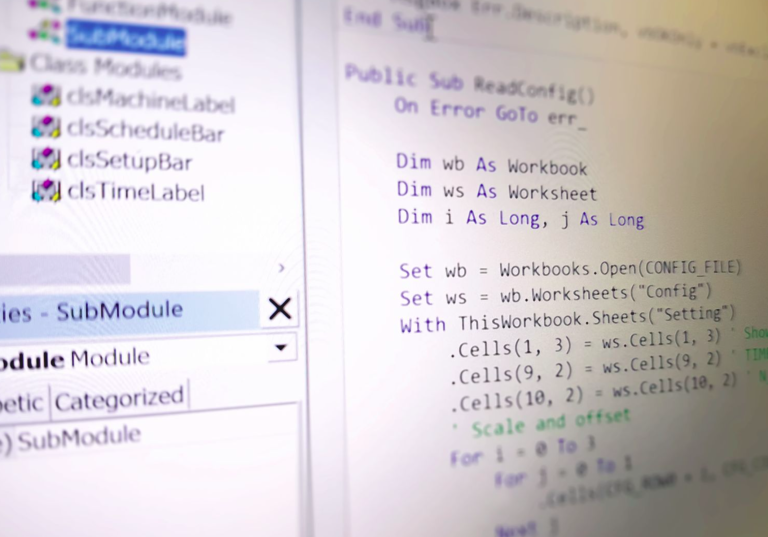How AI is Transforming the Retail Industry
In recent years, the retail industry has witnessed a remarkable transformation, primarily driven by the integration of Artificial Intelligence (AI) technologies. From enhancing customer experiences to optimizing supply chain operations, AI is reshaping the way retailers conduct business. This blog post delves into the multifaceted impact of AI on the retail sector, providing insights into current trends, real-world applications, and future possibilities.
Understanding the Role of AI in Retail
Artificial Intelligence is revolutionizing retail by enabling businesses to leverage data-driven insights and automate processes. The technology encompasses a wide range of applications, including machine learning, natural language processing, and computer vision, all of which contribute to more efficient and personalized retail experiences.
Enhancing Customer Experience
AI is at the forefront of enhancing customer experiences in the retail industry. By utilizing AI-powered chatbots and virtual assistants, retailers can offer 24/7 customer support, providing instant responses to inquiries and personalized recommendations. For example, Sephora’s virtual assistant uses AI to analyze customer preferences and provide tailored product suggestions, boosting customer satisfaction.
Another significant advancement is the implementation of AI in personalized marketing. By analyzing customer data, AI algorithms can predict shopping behaviors and preferences, allowing retailers to deliver targeted marketing campaigns. According to a report by McKinsey, personalized marketing can lead to a 10-30% increase in revenue for retailers.
Optimizing Supply Chain Management
AI is transforming supply chain management by improving efficiency and reducing costs. Through predictive analytics, retailers can forecast demand more accurately, minimizing overstock and stockouts. For instance, Walmart utilizes AI to analyze sales data and predict product demand, optimizing inventory management and reducing waste.
Additionally, AI enhances logistics and delivery operations. Autonomous delivery vehicles and drones are becoming increasingly common, ensuring faster and more efficient last-mile deliveries. Amazon’s use of AI-powered drones for package delivery exemplifies the potential of AI in revolutionizing logistics.
Real-World Applications of AI in Retail
The impact of AI in retail is evident in numerous innovative applications that are transforming the industry landscape. Let’s explore some real-world examples:
Visual Search and Augmented Reality
Visual search and augmented reality (AR) are reshaping the way consumers interact with products online. AI-driven visual search allows customers to upload images and find similar products instantly. Pinterest’s Lens feature is a prime example, enabling users to discover products by simply taking a photo.
Moreover, AR applications provide immersive shopping experiences. Retailers like IKEA use AR to allow customers to visualize furniture in their homes before making a purchase, enhancing decision-making and reducing return rates.
AI-Driven Store Analytics
In physical retail stores, AI is utilized to gather insights into customer behavior. Through in-store sensors and cameras, retailers can analyze foot traffic, customer demographics, and product interactions. This data empowers retailers to optimize store layouts and enhance product placements.
For example, H&M uses AI to analyze in-store data and adjust inventory based on customer preferences, resulting in improved sales and customer satisfaction.
The Future of AI in Retail
As AI continues to evolve, its potential applications in retail are boundless. Future prospects include:
Hyper-Personalization
AI’s ability to analyze vast amounts of data will lead to even more personalized shopping experiences. Hyper-personalization involves creating highly customized interactions and offers based on individual customer profiles, ultimately driving customer loyalty.
Advanced Robotics
Robotics will play a crucial role in retail operations, from warehouse automation to customer service robots in stores. Robots powered by AI will enhance efficiency and streamline operations, allowing retailers to focus on delivering exceptional customer experiences.
Actionable Tips for Retailers Embracing AI
For retailers looking to harness the power of AI, consider the following actionable tips:
- Invest in AI Tools: Explore AI tools and platforms that align with your business goals, such as customer relationship management (CRM) systems or supply chain optimization software.
- Prioritize Data Quality: Ensure data accuracy and quality to maximize the effectiveness of AI algorithms. Clean and structured data is crucial for obtaining reliable insights.
- Train Your Workforce: Educate your employees on AI technologies and their applications. A knowledgeable workforce can effectively leverage AI tools and drive innovation.
- Focus on Customer Experience: Utilize AI to enhance customer interactions and provide personalized experiences. Satisfied customers are more likely to become loyal advocates for your brand.
Conclusion
AI is undeniably transforming the retail industry, offering unprecedented opportunities for businesses to enhance customer experiences, streamline operations, and drive growth. As AI technologies continue to advance, retailers must be proactive in adopting and integrating these innovations to stay competitive in an ever-evolving market. By embracing AI, retailers can unlock new possibilities and shape the future of retail.
In conclusion, the integration of AI in the retail industry is not just a trend but a necessity for businesses aiming to thrive in the digital age. By understanding the current applications and future potential of AI, retailers can position themselves for success and deliver exceptional value to their customers.



